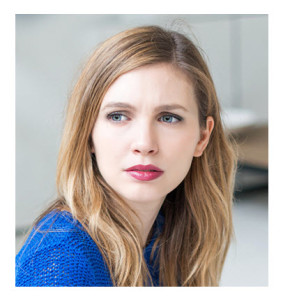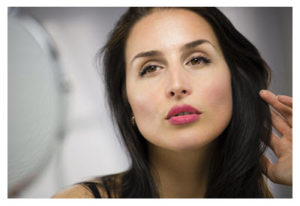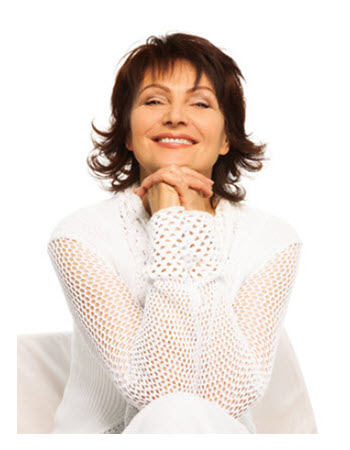Identity. It’s a tricky topic. Tricky to grasp, to understand, to bring out of the closet.
 Identity is about more than a name, a gender designation, an ethnic group. Identity is about how we see ourselves, tempered with the impressions and treatment of others.
Identity is about more than a name, a gender designation, an ethnic group. Identity is about how we see ourselves, tempered with the impressions and treatment of others.
We might typically think of an identity crisis as occurring during adolescence as we define who we are and what that means. But an identity crisis can occur any time – when we question our own motivations or behavior, when we live through a life-altering event, or as we face a change in our relationship to other people.
I’ve been thinking about the most important facets of my identity and that of friends. For me, identity begins in being a woman, and from there I am a writer, a parent, a provider – and of course, many other things to many other people.
You Are How You Look
Some of us are more chameleon-like than others. This is a skill we have picked up, and much like the animal itself, as a matter of survival.
Some of us take what we can get – and run with it. For the “beautiful” girl, this may be a given. That doesn’t mean it’s the only aspect of identity that is internalized, but surely it is a significant one.
As an American female, I never took my sense of self from being pretty, as I wasn’t. I was more or less plain, and on a good day, cute. For much of my life, I was also overweight, and that fact generally overshadowed any other compliment that might be received when it came to appearance.
Naturally, we internalize the negative reinforcement as well as the positive – perhaps even more strongly.
You Are How You Think
As a child, I lived in my head. As a student, playful though I was with friends, I also lived in my head. As a writer and a marketer, I still live in my head – and I’m happy with that. I have no need or intention to change it.
Clearly, as an adult, I don’t solely live an interior life; I enjoy my socializing adventures, I interact with my kids, I’m outgoing with close friends, I thrive on the spark of engagement with clients.
That said, I live a rich inner life and am content to do so. Consequently, “je pense, donc je suis” – I think, therefore I am – is a phrase that certainly describes me.
Fortunately, my mother was pleased to have a child she considered bright and I was praised for being smart, curious and creative. But just as insistent was this message: It is essential to be liked. And that requirement is frequently in direct conflict with our own best interests.
Childhood Sets Identity Patterns
How many women could say they grew up identifying themselves as a function of how they looked, largely due to the feedback they received about their faces, their bodies and their dress? How many women could also say they were raised with kudos for being able to please?
 But what about smarts? Athletic prowess? Artistic talents? Were you praised for these? Praised intermittently while other aspects of who you are were emphasized with greater frequency? Did you feel “whole” in owning your intelligence, your opinions, your hard-won gifts? And as you grew older, was your identity reshaped by your association with or attractiveness to a man? Were you judged by the person you dated – by his looks or prospects?
But what about smarts? Athletic prowess? Artistic talents? Were you praised for these? Praised intermittently while other aspects of who you are were emphasized with greater frequency? Did you feel “whole” in owning your intelligence, your opinions, your hard-won gifts? And as you grew older, was your identity reshaped by your association with or attractiveness to a man? Were you judged by the person you dated – by his looks or prospects?
On Turning Heads
Recently I had a conversation with a woman friend on the subject of turning heads when you enter a room, and the disorientation that occurs in one’s middle years, as the preeminence of beauty fades and a major aspect of one’s self-worth is increasingly threatened.
This friend, still an extremely pretty woman, was one of those head-turners for at least 20 years. She said something that made me take note: “I didn’t miss it when it stopped because it was never that important to me. Other things are more enduring, and far more significant.”
Her life was about her family and a variety of jobs. She knew who she was on the inside – a woman of great strength – the outside (and the responses it garnered) seemed to be taken as bonus.
On Marital Status
She made another remark as we were talking, and it is still sinking in. No longer married and not currently involved, she said: “In this culture, if you’re not with a man – dating one, living with one, married to one – you’re nothing.”
Ah. The issue of marital status bias, alive and well.
Now those may not have been her exact words, and they slipped out as a bit of an aside. I am convinced that in a different mood not only would she never say them, but she doesn’t fully believe them. Incidentally, this friend is a productivity powerhouse, knowledgeable in a broad set of business domains, and generally speaking, extremely confident.
Yet in my experience, she’s right. It may take reaching a certain age as an unmarried woman to feel its effects, or going through marriage and then divorce. The fact remains: American society continues to value its women at least in part by virtue of their relationship to men.
 Married? You’re in “the” exclusive club. Widowed? Not only were you good enough to marry, but you managed to stick it out.
Married? You’re in “the” exclusive club. Widowed? Not only were you good enough to marry, but you managed to stick it out.
Divorced? Well, at least once upon a time someone thought you were good enough, but you’re either selfish (and left) or you did something that caused you to be traded in for another model.
Living with someone or dating? It’s better than nothing…
Women as Providers
I suppose we could think of this as the “you are what you do” portion of the program. But it is something else. This isn’t about taking one’s identity from being a painter or a teacher or a physician; it is broader than that.
I can’t tell you how many times I’ve read that losing a job will devastate a man. After all, we’re taught that the male identity is wired for being the provider, right?
Let me say this: Being laid off from my job as divorce exploded into my life was far more damaging to my sense of self than the demise of my marriage. Note that I specify my sense of self. I had been married for 12 years, but earning my own living for nearly 25. Who I was – and to a large degree remain – is a professional, self-sufficient adult, a provider. I was raised to be independent, to earn my own keep, to achieve and produce – for which I earn money.
When that ended? When, even now, I periodically find myself enduring periods of unemployment or underemployment as a contract (or freelance) worker? My self-confidence can be sorely tested. Elements of my belief systems, broken. My sense of optimism, shredded. The longer any such period lasts, the more I am cast adrift, not only financially but psychologically – and vulnerable with two young boys to raise on my own.
Who I am – as much as any other fundamental aspect of my identity – is my ability to provide.
How Do You Identify Yourself?
As for my being a woman, I feel better when I’m thinner, I feel better when I have a good haircut, I feel better when I consider myself as attractive. This is part of who I am. More precisely, this is part of who I am – in this culture.
In France, I am more integrated in some inexplicable way, less prone to worrying about appearance in any way, while doing nothing in particular that is different.
As a writer, I am my fullest self – all elements of my sex (and other demographic labels) coming into play or not – as I choose. I am a writer in my waking hours and a writer in my dreaming. My mind is always happily at work, writing or otherwise engaged, as I enjoy my smarts, my curiosity, my creativity.
Clearly, my sense of self is closely tied to other roles – I have loved being a mother (much to my own surprise), I love giving love and having it returned, I still struggle with wanting to be liked far more than I wish I did, and far less than was once the case.
What I would hope: We would socialize our girls so that the relative importance of appearance and external opinions shifts. What is important, as my friend said to me, are other things that are “more enduring and far more significant.”
You May Also Enjoy
How do I identify myself? That’s a big question. Yes as a woman, a mother, now a grandmother, a creative type, a westerner (the American West is a significant part of my being – that sense of mountains and red rocks and natural places feeding my soul and feeling like home), and a negative thing is as a middle child. I’ve always felt an outsider in my family and this causes me angst. I’m quiet. I’m sensitive. I’m very interested in spiritual, ethereal aspects of our existence.
I do have a couple friends who are single, both because of divorce, and both feel that sense of being one step out of “the circle.” We do so much in twos, don’t we? I try to be conscious of including them when couples go out – but very often it’s they who feel uncomfortable or 3rd wheel-ish and decline. So what are you gonna do?
During the 20 yrs I was married, my identity as a separate person became more and more absorbed into the day-to-day swirl storm of providing 24/7 care to 3 kids while the financial provider responsibilities belonged squarely to my husband whose employer required us to relocate every
2 years and for him to travel every week to earn a decent salary.
At the beginning of the 2008 recession, I found myself at age 45 and newly divorced, trying desperately to put together a resume to impress to compete with floods of job applicants much younger who had more college degrees and hands-on job experience. I had been out of the job market for nearly 20 years except for a few part time positions.
After getting a new paralegal degree, I spent the next 3 years miring through the job market muck and discovered just how over-saturated the paralegal field is where I live and how abusive attorneys can be to work for.
I then went back to the drawing board and decided to start my own Divorce Guidance Biz and now
I also now work in real estate as well.
I’ve always wondered what identity crisis is. I think I’m still building that identity right now. Would it be better if there’s an ideal identity you can look forward to?